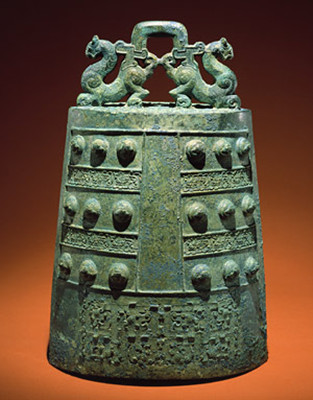This is the music that was played at the ceremony marking Britain's handover of Hong Kong to the People's Republic of China in 1997.
一九九七年,香港回归中国的仪式上,
The choice of music on each side had some very interesting aspects.
中英两国挑选的音乐都极具特色。
The British played the 'Last Post' on a bugle;
英国用军号独奏了《最后的岗位》,
the Chinese a specially composed piece of music called 'Heaven, Earth, Mankind'; part of it played on a set of ancient bells.
中国则演奏了一曲特别打造的交响乐《天地人》,其中一段由一组古代铜钟演奏。
On the European side, a solo instrument connected with war and conflict;
英方选择了一支表现战争与冲突的乐器进行独奏,
on the Chinese side, a group of instruments playing in harmony.
而中方用一组乐器表现了和谐。
It may be stretching it a bit, but I think you can see in that choice of instruments, two very different views of how society works.
从这一景象稍微延伸,就能发现,这其实表现了两种截然不同而又相当固我的社 会组织方式。
Bells in China go back thousands of years, and they carry great resonances for Chinese people - so perhaps this was the Chinese leaders' way of reminding Hong Kong of the cultural and political traditions it would be rejoining.
中国的铜钟已有几千年的历史,至今仍能在百姓中引发极大共鸣。因此,这也许是中国领导人想要暗示香港,他们将要回归一个怎样的文化和政治传统。













